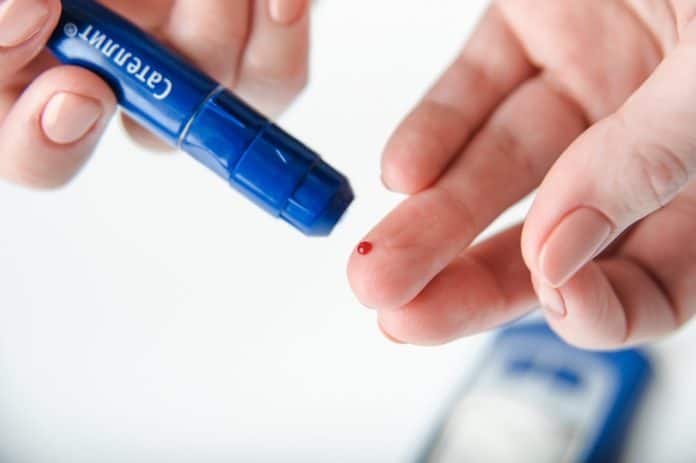Last Updated on December 9, 2023 by The Health Master
Diabetes
In recent decades, diabetes has emerged as a global health concern, affecting millions worldwide.
The World Health Organization (WHO) reports a staggering increase in diabetes cases, from 108 million in 1980 to a staggering 422 million in 2014.
The gravity of the situation demands a proactive approach, as diabetes not only poses immediate health risks but can also become a hereditary issue.
Unraveling the Symptoms
Early Signs of Type-2 Diabetes
Identifying diabetes in its early stages is crucial. WHO outlines several symptoms associated with type-2 diabetes, serving as red flags for potential sufferers:
- Excessive Thirst: Sudden and unexplained thirst.
- Increased Urination: A noticeable increase with possible changes in consistency.
- Diminished Eyesight: Gradual weakening of eyesight.
- Persistent Fatigue: Unexplained and persistent fatigue.
- Fluctuations in Weight: Sudden weight gain or loss.
As diabetes progresses, it can lead to weakened nerves, impacting vital organs like the heart, eyes, and kidneys.
Decoding Diabetes: Type 1 vs. Type 2
Distinguishing Between Types
Diabetes is commonly categorized into two types:
- Type 1 Diabetes: Also known as insulin-dependent or childhood diabetes, characterized by low insulin levels, necessitating daily injections.
- Type 2 Diabetes: In this type, the body struggles to use glucose for energy, resulting in improper insulin utilization and potential high blood sugar levels.
Preventing Type 2 Diabetes
Taking Preventive Measures
While preventing type 1 diabetes may be challenging, there are practical steps to avert type 2 diabetes:
- Maintain Fitness: Obesity can exacerbate diabetes; hence, focusing on maintaining a healthy body weight is crucial.
- Regular Exercise: Allocate at least 30 minutes daily for physical activity.
- Balanced Diet: Reduce sugar and processed food intake, opting for a colorful array of vegetables.
- Avoid Tobacco and Limit Alcohol: Adopting a healthy lifestyle involves steering clear of tobacco and moderating alcohol consumption.
Managing Diabetes: Balancing Medication and Lifestyle
Navigating Treatment Options
While various medications exist for diabetes management, excessive reliance on pills can impact the kidneys and heart.
Striking a balance between medical intervention and embracing a healthy lifestyle is pivotal for long-term well-being.
Vigilance for Diabetics: Key Considerations
Never Overlook these Vital Aspects
For individuals grappling with diabetes, vigilance is paramount:
- Prompt Medical Attention: Seek immediate medical attention for non-healing injuries or unusual skin conditions.
- Regular Kidney Check-ups: Given the potential impact on kidneys, regular check-ups are essential.
- Ophthalmic Screenings: Diabetes elevates the risk of retinopathy, emphasizing the need for regular eye examinations.
Conclusion
In the face of diabetes, knowledge and proactive measures are the best defenses.
By understanding symptoms, types, and preventive strategies, individuals can navigate this health challenge more effectively.
Remember, early intervention and a holistic approach to health can make a significant difference.
Source: World Health Organization
FAQs
- Q: Can diabetes be completely prevented?
A: While preventing type 1 diabetes is challenging, adopting a healthy lifestyle can significantly reduce the risk of type 2 diabetes. - Q: What role does exercise play in diabetes prevention?
A: Regular exercise is crucial in maintaining overall health and reducing the risk of diabetes, as it helps control weight and improves insulin sensitivity. - Q: Are there alternatives to medication for managing diabetes?
A: Lifestyle modifications, including a balanced diet and regular exercise, play a pivotal role in managing diabetes without solely relying on medications. - Q: How often should diabetics undergo medical check-ups?
A: Diabetics should undergo regular check-ups, including kidney and eye screenings, as advised by their healthcare providers. - Q: How can individuals support others with diabetes?
A: Supporting individuals with diabetes involves promoting a healthy lifestyle, encouraging regular check-ups, and fostering a positive and understanding environment.
Disclaimer: This article contains information derived from the source mentioned below. Our team utilized an AI language model to rewrite and present the news or article in a unique format.
Practical Tips for Diet Control for Diabetics: Doctor
The Power of Endorphins: Your Natural Euphoria and Pain Relief
Surgeons Break New Ground: First Eye Transplant Raises Hope
Phase 3 Trial: Navigating Challenges in Lung Cancer Treatment
The Hidden Dangers of Air Pollution: what Doctors say
Understanding the Alarming Rise of Antibiotic Resistance in India
17 Crore: Most costly Lifeline injection for SMA Afflicted Children








